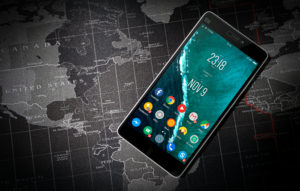The Paradox of Choice: Will innovators be Forever Delighting or Confusing?

Everyone loves choice. That’s always supposed to be a good thing.
Everyone knows that one of the core benefits of innovation is giving more choice to customers, whether it’s consumers in the B2C world or business customers in the B2B world. Everyone loves choice. That’s always supposed to be a good thing.
Well, I’ve been thinking lately, and I wonder if you have too, that what happens when innovation leads to too much choice? What you say, too much choice? How can that ever be?! This idea crystallized recently when I was thinking about confusion across a number of categories. In particular, I want to give thanks to Jim Koch, who’s the founder of Boston Beer. He was talking about disappointing earnings in a recent earnings call. Jim stated that perhaps consumers are suffering from a “paradox of choice” when it comes to craft beers. Well, how could that be? I’m sure those of you who live in the United States know that Boston Beer was one of the original disruptors. They were the startup guys who took on the big boys and created quite a niche in the craft beer segment … In fact, you could say they actually created the craft beer category in many ways.
If you do a little digging, you find out that there were about 97 beer brands in the US in 1984 when Boston Beer was founded. At latest count, it’s over 5,000 beers due to the explosion of craft beers. Now that’s a lot of choices. Koch said that perhaps consumers are so confused that they’re saying, “I’ll just have a Corona.”
Is this confusing, is it a paradox of choice? If so will it in effect lead consumers back to larger, more established brands? Or will we always be forever in search of the new thing?
Now let’s consider few other categories. So I’m sitting at home and I’d like to watch TV. Who can argue that having over 500 channels, or maybe it’s 600, or maybe it’s 800 channels — I actually don’t know — isn’t a paradox of choice? Oh, and yes that is before I include NetFlix, Hulu, Amazon Prime, etc. etc. How can I possibly think through all those channels and how am I going to decide what I want to watch? Will I be exploring for new and innovative entertainment options to offer me, even more, choice or am I going to default back to my old, safe, standard channels and brands?

How many food delivery options do I have to choose from- what’s the difference?
Here’s another thought. I’m hungry. I’m in my apartment in New York City, and gosh, I’d like to have something delivered. I’d like something Italian let’s say, delivered for dinner tonight. How many delivery options do I have to get that? Do I default to calling the restaurant? Do I click on Uber Eats? I think at latest count I heard there were somewhere between 12 and 16 delivery apps and services in New York City for delivering meals to home. Yikes, am I the only one that risks being confused?
Final example: I’m on the road. I’m driving and I’d like to have a nice dinner, and I’d love directions on where I’m going to go to find that perfect restaurant in the middle of wherever my travels are taking me. Am I going to go on Yelp? Am I going to go on Trip Advisor? Am I going to go on Google Maps? Am I going to go on Apple Maps? Am I going to go to Facebook? Am I going to go to etc., etc., etc.? Oh, by the way, this doesn’t even get into the various social media choices I have, how I can post photos, how I can post and view videos, etc., etc.
So here is my watchout for all leaders and all innovators that need to ask:
What are the implications of this paradox of choice? Can there be too much of a good thing, and if so, what role will my brand play?
Now, of course, I wouldn’t throw this notion out there if I didn’t have some ideas to consider. I think these fall into two broad categories. Let’s say thoughts for innovators who are in Large, Established firms. Then secondly, let’s add in thoughts for innovators who are in the Startup or let’s say Disruptor stage.

How are you going to make it 10 times better than the alternatives that are out there?
Let’s start with the startups and the disruptors. Heck, why not? Perhaps you could argue the reason we have this “paradox of choice” is because we are living in the age of entrepreneurs and the age of startups. You already know it’s easier than ever before to launch a startup. You can get funding. You can get mentor support. You can crowdsource. You can collaborate. You can get most any assistance you want. In fact, Millennials graduating right now, I believe, are absolutely inclined to say, “I want to work for a small firm or startup versus one of those established, stodgy, or OMG, dinosaur legacy companies.” Don’t you agree?
If you are a startup and you’re going to be offering more choice, whether it to be beer or whether an app, how on earth are you going to figure out what your point of differentiation is going to be? How are you going to make it 10 times better than the alternatives that are out there? Assuming you can accomplish those first two things, how are you going to cut through the clutter? Are you going to be one of the million-plus apps languishing on the App Store or Google Play or are you going to do something to break through and get your idea recognized and get yourself out there?
I’m not sure these rules have been written, but as I spend more and more time talking with innovators and talking with folks who are in incubators and accelerators, I see more and more ideas basically in the same place, offering the same thing, offering the same idea that dozens if not hundreds of other startups are working on. I think you are absolutely headed into the paradox of choice, which I think is going to lead you into the valley of confusion, and no sales, and no customers, and no users, therefore no success.
Let’s talk now about a large, established firms. What does the paradox of choice mean for you? To me, there are two sides to this coin. Side number one:
Get up and do something or you are going to be disrupted!

You need to innovate. You need to be in the game. You need to offer choice.
Which is, of course, happening in many, many, many if not every industry right now. Consumers love choice. If you get a better alternative offer, I don’t care how long you’ve had your customers, I don’t care how many millions of dollars or euros you have invested in them if your customers see a better alternative, they’re going to switch to that alternative. You need to innovate. You need to be in the game. You need to offer choice. If you don’t, I say you’re destined to lose.
Now here’s perhaps a little thought of insight which I would offer to larger companies. Does the fact that you have an established brand give you leverage and give you ability so that when customers are confused, they go and reach for their trusted friend? Hopefully, that friend is you, that brand is you. Why? Because of years of quality service and dedication, provided, of course, you are offering the best in customer service.
You are the one who is out there. You are the one who is saying, “You want choice?
Come to who you already know and trust, and we absolutely have that new choice covered for you.”
So in closing, is the paradox of choice real? Is it more important for large companies to think it about or is it more important for startups and entrepreneurs to act on? Who’s to win and who’s to lose?
As always, looking forward to your comments, and I’ll be back to talk to you soon.
